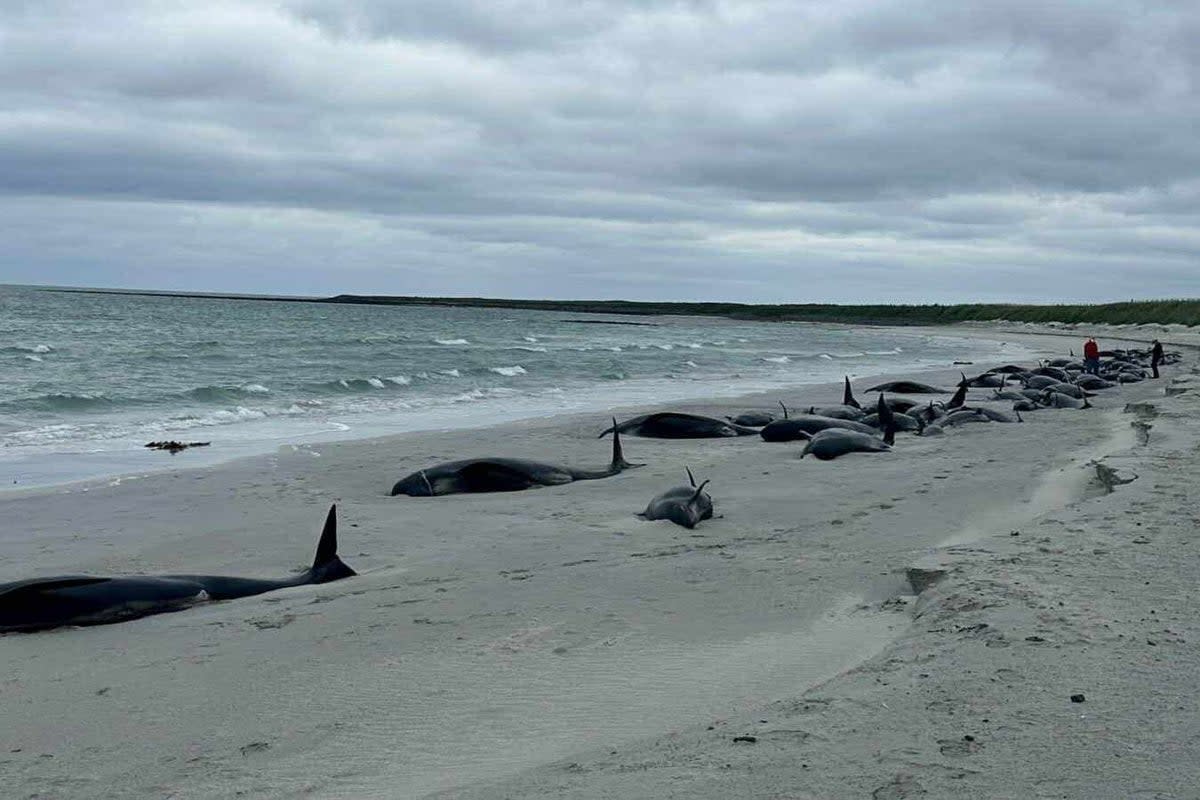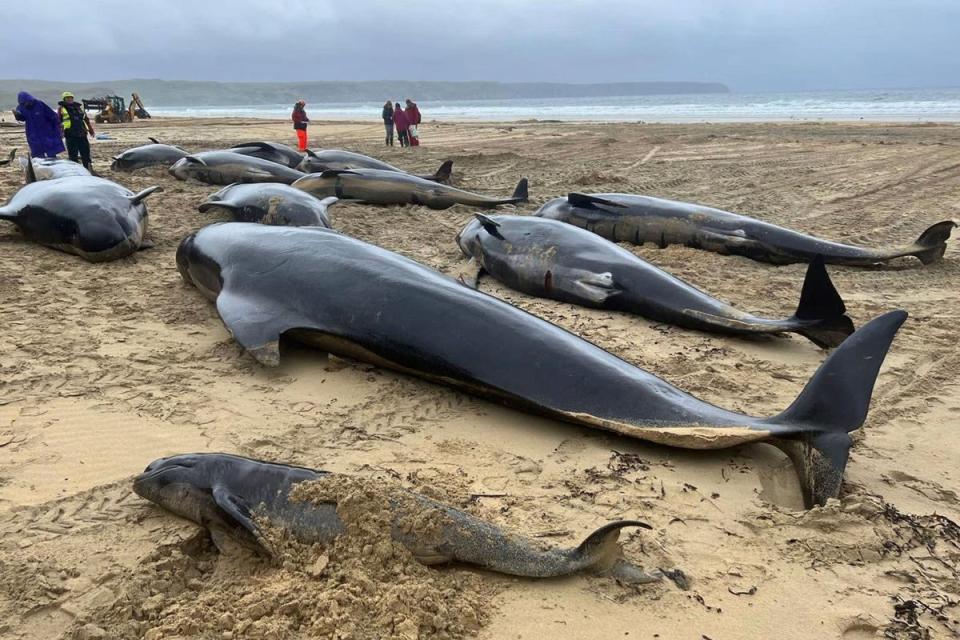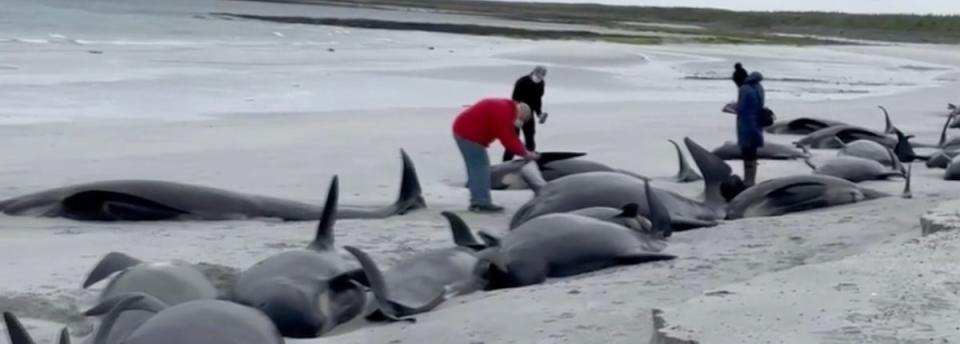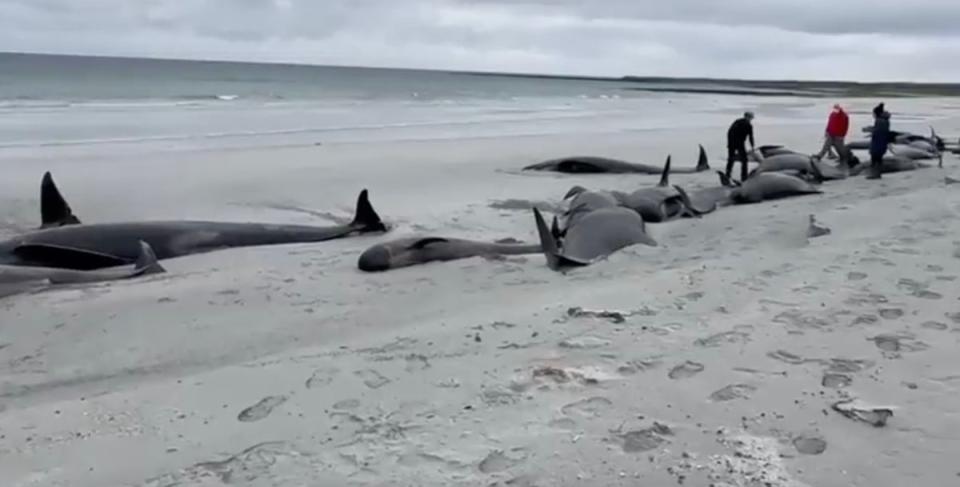Dozens of whales die in one of largest mass strandings in Britain in recent times

Dozens of whales have died in one of the largest mass strandings in Britain in recent times, with experts striving to save the few survivors.
At least 65 long-finned pilot whales died after 77 were washed ashore on an island off the north coast of Scotland, a rescue charity said on Thursday, warning that many of the remaining will not survive.
The British Divers Marine Life Rescue (BDMLR) said it had been alerted to the “horrible” and “hugely emotional” stranding of up to 100 animals just before 11am, sending medics to Tresness Beach on Sanday, a Scottish island in the Orkney archipelago.
“On arrival, the medics found there to be about 77 animals high up the beach, having evidently been stranded for several hours already. Sadly, only 12 of them [were] still alive at this point,” the charity said in a statement, adding that first aid has been given to the surviving animals as the incoming tide approaches them. “Our team continues to work hard to manage this incredibly difficult situation.”
It comes almost a year after a similar incident occurred in Scotland when 55 pilot whales were stranded on 16 July 2023 on the Isle of Lewis, Outer Hebrides, with only one surviving.

Describing the latest stranding as a “big, big incident”, “really quite horrible” and “hugely emotional”, Emma Neave-Webb, from BDMLR, told BBC Scotland News: “There are whales everywhere. There’s a long line of them, some of them are still alive.
“I know from experience how difficult these incidents are and I think we need to be realistic.”
She warned it is unlikely the rescue teams will be able to save many of the surviving whales.
"We will do our utmost best obviously, but they have been here for quite some time, so I think we have to be slightly pragmatic about it," she said.
Molly Brown, who works for BDMLR, said although the cause of the stranding was unknown, the whales are sociable and may have followed one of the group who became stranded.

Describing the stranding as “the largest one in a long time”, Ms Brown said: “We have 77 animals stranded and only 12 are alive at the moment, the tide is on its way in. The whales are hopefully going to be refloated on the tide.
“We are just getting all our medics there at the moment, we have got medics heading from elsewhere on Orkney and other areas of Scotland. We will do our best to save the remaining live ones.
“Pilot whales are incredibly sociable and so it’s possible that one of them stranded and the rest followed.
“It's the largest one in a long time. We did have a mass stranding of 55 around this time last year on the Isle of Lewis. It's a different part of Scotland – I don't know if it's just a coincidence. There's a lot of disturbance.”

Scottish Marine Animal Strandings Scheme intends to begin post-mortem investigations.
Whales can get stranded on shore for a range of reasons, such as when they lose their way or get trapped by tides, but scientists say there is no single definitive reason behind the phenomenon, which has been recorded throughout history.
Pilot whales, in particular, have close social bonds, and when one member of a pod gets into difficulties, others often follow them, resulting in mass strandings.
A mass stranding also occurred in Western Australia earlier this year.


